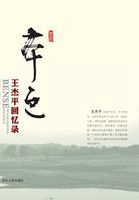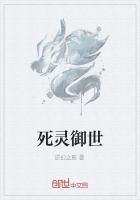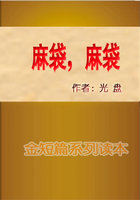The story of the Lowell cotton factories, for twenty years, more or less, until the American girls operating the machines came to be supplanted by French Canadians and Irish, is appropriately summed up in the title of a book which describes the factory life in Lowell during those years.The title of this book is "An Idyl of Work" and it was written by Lucy Larcom, who was herself one of the operatives and whose mother kept one of the corporation boarding-houses.And Lucy Larcom was not the only one of the Lowell "factory girls" who took to writing and lecturing.There were many others, notably, Harriet Hanson (later Mrs.W.S.
Robinson), Harriot Curtis ("Mina Myrtle"), and Harriet Farley;and many of the "factory girls" married men who became prominent in the world.There was no thought among them that there was anything degrading in factory work.Most of the girls came from the surrounding farms, to earn money for a trousseau, to send a brother through college, to raise a mortgage, or to enjoy the society of their fellow workers, and have a good time in a quiet, serious way, discussing the sermons and lectures they heard and the books they read in their leisure hours.They had numerous "improvement circles" at which contributions of the members in both prose and verse were read and discussed.And for several years they printed a magazine, "The Lowell Offering", which was entirely written and edited by girls in the mills.
Charles Dickens visited Lowell in the winter of 1842 and recorded his impressions of what he saw there in the fourth chapter of his "American Notes".He says that he went over several of the factories, "examined them in every part; and saw them in their ordinary working aspect, with no preparation of any kind, or departure from their ordinary every-day proceedings"; that the girls "were all well dressed: and that phrase necessarily includes extreme cleanliness.They had serviceable bonnets, good warm cloaks, and shawls....Moreover, there were places in the mill in which they could deposit these things without injury; and there were conveniences for washing.They were healthy in appearance, many of them remarkably so, and had the manners and deportment of young women; not of degraded brutes of burden."Dickens continues: "The rooms in which they worked were as well ordered as themselves.In the windows of some there were green plants, which were trained to shade the glass; in all, there was as much fresh air, cleanliness, and comfort as the nature of the occupation would possibly admit of." Again: "They reside in various boarding-houses near at hand.The owners of the mills are particularly careful to allow no persons to enter upon the possession of these houses, whose characters have not undergone the most searching and thorough enquiry." Finally, the author announces that he will state three facts which he thinks will startle his English readers: "Firstly, there is a joint-stock piano in a great many of the boarding-houses.Secondly, nearly all these young ladies subscribe to circulating libraries.
Thirdly, they have got up among themselves a periodical called 'The Lowell Offering'...whereof I brought away from Lowell four hundred good solid pages, which I have read from beginning to end." And: "Of the merits of the 'Lowell Offering' as a literary production, I will only observe, putting entirely out of sight the fact of the articles having been written by these girls after the arduous labors of the day, that it will compare advantageously with a great many English Annuals."The efficiency of the New England mills was extraordinary.James Montgomery, an English cotton manufacturer, visited the Lowell mills two years before Dickens and wrote after his inspection of them that they produced "a greater quantity of yarn and cloth from each spindle and loom (in a given time) than was produced by any other factories, without exception in the world." Long before that time, of course, the basic type of loom had changed from that originally introduced, and many New England inventors had been busy devising improved machinery of all kinds.
Such were the beginnings of the great textile mills of New England.The scene today is vastly changed.Productivity has been multiplied by invention after invention, by the erection of mill after mill, and by the employment of thousands of hands in place of hundreds.Lowell as a textile center has long been surpassed by other cities.The scene in Lowell itself is vastly changed.If Charles Dickens could visit Lowell today, he would hardly recognize in that city of modern factories, of more than a hundred thousand people, nearly half of them foreigners, the Utopia of 1842 which he saw and described.
The cotton plantations in the South were flourishing, and Whitney's gins were cleaning more and more cotton; the sheep of a thousand hills were giving wool; Arkwright's machines in England, introduced by Slater into New England, were spinning the cotton and wool into yarn; Cartwright's looms in England and Lowell's improvements in New England were weaving the yarn into cloth; but as yet no practical machine had been invented to sew the cloth into clothes.
There were in the United States numerous small workshops where a few tailors or seamstresses, gathered under one roof, laboriously sewed garments together, but the great bulk of the work, until the invention of the sewing machine, was done by the wives and daughters of farmers and sailors in the villages around Boston, New York, and Philadelphia.In these cities the garments were cut and sent out to the dwellings of the poor to be sewn.The wages of the laborers were notoriously inadequate, though probably better than in England.Thomas Hood's ballad The Song of the Shirt, published in 1843, depicts the hardships of the English woman who strove to keep body and soul together by means of the needle:















